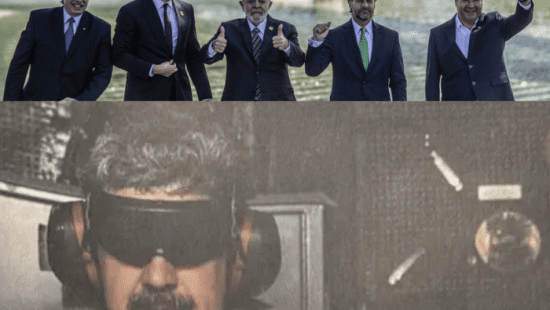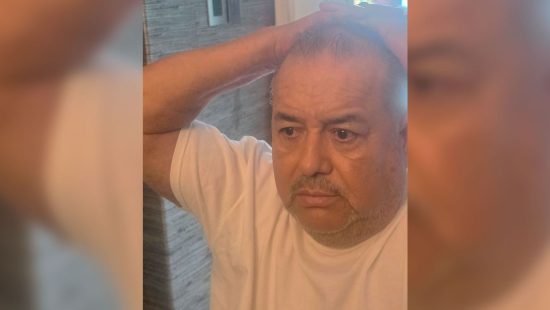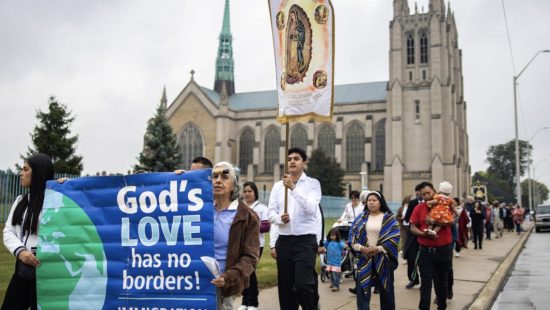“The Senate dispensed with over 350+ bills and each day was packed with a lot of debate on the floor about a variety of issues affecting Californians” Photo Credit: Jeff Walters – CA Senate Photographer)
It’s too early to determine if the three bills promoted by State Senator Lena González will be implemented in California. However, their approval in the State Senate opens the door to a hopeful path, raising awareness on three fundamental issues in our society: transparency, Latino health, and safety.
On May 21, 2024, Majority Leader Gonzalez’s (D-Long Beach) Senate Bill 1337, the Referendum Funding Transparency Act, passed the Senate with a vote of 28-9. The bill will provide California voters with additional transparency about the entities and corporations that fund referendum measures to overturn existing laws.
“Empowering voters to transparently see who funds efforts to overturn state laws is critical to protecting voters’ rights,” said Majority Leader Gonzalez (D-Long Beach) in a statement. “The referendum process was established to give voters a tool to counter the influence of greedy corporate interests. But the misleading tactics corporations use now create confusion and decrease transparency, undermining the referendum’s intended purpose, and its potential to uplift democracy for the people.”
SB 1337 could be a game changer in the way public interests can confront private interests that have unlimited resources.
For a long time, California legislators, in conjunction with community organizations, have tried to push laws that benefit the health, economy, and common interests of Californians, especially minorities. The fight against sugary drinks, underage smoking, and junk food has made advances that are often lost in referendums or special elections aimed at overturning them or even supporting economically aligned politicians to get elected.
SB 1337 would clearly establish which corporations or economic interests are driving a referendum, obligating them to appear publicly to be identified by voters. It will also require that the top three funders of a referendum petition appear directly on the signature petition, rather than on a separate piece of paper. The bill will also require signers of the petition to mark their initials next to a statement that they have reviewed the top funders. Finally, SB 1337 will require that all petitions be updated to reflect changes in top funder information within five business days when there is a new top funder.
“Big Tobacco spent millions to overturn the ban by putting Proposition 31 on the 2022 ballot. However, voters rejected this attempt, maintaining the ban on flavored tobacco.”
“The passage outlines two notable instances where large corporations attempted to overturn legislative measures through referendums in California, highlighting efforts by Big Tobacco and the fast food industry,” mentions a statement distributed by the senator’s office.
“Flavored Tobacco Ban: After SB 793 was signed into law in 2020, banning flavored tobacco products, Big Tobacco spent millions to overturn the ban by putting Proposition 31 on the 2022 ballot. However, voters rejected this attempt, maintaining the ban on flavored tobacco,” it continues.
The senator mentions another notable case, AB 257, “set pioneering standards for fast food workers. In response, the fast food industry spent substantial amounts to propose a referendum to overturn it. Eventually, a compromise was reached, ensuring workers’ rights while allowing industry input.”
Other bills:
Senator González also achieved Senate approval for Senate Bill 1253, the Enhanced Firearm Safety Certifications Act, which passed the Senate with a vote of 26-9. The bill requires that individuals relocating to California with firearms acquired outside the state must undergo safety training and obtain a Firearm Safety Certificate (FSC), mirroring the legal requirements for California firearm owners who purchased their firearms within the state.
“Currently, due to certain safety loopholes in existing law, a person who moves to California with firearms is not required to take an FSC test. This results in a lack of knowledge and regular upkeep on safe firearm handling practices among gun owners that can, and has led to, unintended and preventable tragedies. According to the DOJ Office of Gun Violence Prevention’s 2023 Data Report, there were 69,136 gunshot wound incidents in California from 2016 to 2021 that resulted in death or that required urgent medical attention. Of these 69,000 gunshot wounds, almost a third (31%) were from unintended and accidental shootings.”
And finally, an issue that would impact the health of Latino and Indigenous communities in the state, an urgent issue in California.
SB 1016, the Latino & Indigenous Health Disparities Reduction Act, was approved by the Senate with a vote of 34-0. The bill aims to address health disparities among Latino and Indigenous communities by requiring the California Department of Public Health to gather and disaggregate more comprehensive data for these groups. This enhanced data will facilitate a more targeted allocation of state resources to address the unique health needs of Latino and Indigenous communities in California.
“Our diverse Latino and Indigenous communities deserve to be seen,” said Majority Leader Gonzalez (D-Long Beach). “With SB 1016, the specific needs of these communities will be accurately represented in data collected by the state, enabling us to fund and prioritize resources to better support their health and wellbeing. I am thankful to my Senate colleagues for supporting this measure today and our amazing advocates on the ground. I urge my counterparts in the Assembly to also lend their support to the bill as it moves to the second house.”
These bills will move to the Assembly next. There they may be referred to one or multiple policy committees for consideration, a process that will take place anywhere from May 28, 2024, to July 3, 2024. Then the bills must pass a fiscal committee and the Assembly Floor in late August, and by August 31 for a concurrence vote in the Senate should the bills be amended.








